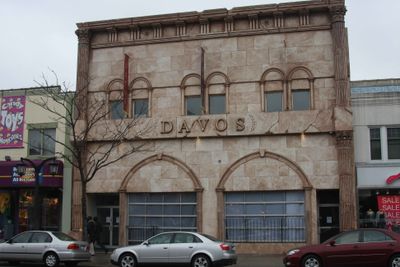28.1.2012 | 22:18
Sagt í Davos
 Eins og flestir vita hefur Davos ráðstefnan staðið yfir nokkra undanfarna daga. Þar hittast þeir sem allir "elska að hata", stjórnmálamenn, bankamenn, kaupsýslumenn og einstaka "selebritti" er sett í blönduna. Ég setti hér inn nokkur af þeim "sándbætum" sem mér hafa þótt athygliverð í ár.
Eins og flestir vita hefur Davos ráðstefnan staðið yfir nokkra undanfarna daga. Þar hittast þeir sem allir "elska að hata", stjórnmálamenn, bankamenn, kaupsýslumenn og einstaka "selebritti" er sett í blönduna. Ég setti hér inn nokkur af þeim "sándbætum" sem mér hafa þótt athygliverð í ár.
These are the wealthiest countries in the world, and you can't expect a Chinese peasant earning $200 a year to contribute to bailing out Europe. It doesn't make any sense. They can do it by themselves, and we have made that clear to them. They have some good fiscal consolidation plans in place in Spain and Italy. They have to make sure that they are enforced."
Jim Flaherty, fjármálaráðherra Kanada
European leaders "repeat the same kind of platitudes, 'we need to get growth, austerity won't be enough,' but no country has policies that will achieve growth. I haven't heard a single thing here that has given me a sense that the European leaders have any sense of what they need to do and will do. Nobody knows who owes what to whom, where the risks of a Greek default are."
Joseph Stiglitz, nóbelsverðlaunahafi í hagfræði.
"The failure of a containment strategy will mean not only the potential implosion of the euro, but an economic crisis with devastating consequences for the rest of the world. This is a task for all of us in the G-20."
Felipe Calderon, forseti Mexikó
On the European bailout fund: "Some say that it has to be double the size, then if that's not big enough, others will say it has to be three times as big. What we don't want is a situation in which we promise something that we can't back up."
Angela Merkel, kanslari Þýskalands
It is also very important that we remember people are willing to make sacrifices, but not be sacrificed," Helle Thorning-Schmidt, forsætisráðherra Danmerkur
"I don't believe fresh money on the table is the only possible solution. If the money is needed, then we need to talk about it, but it's very difficult to find any fresh money. It's politically difficult, but before we see how well the countries can behave there is no need for fresh money."
Jyrki Katainen, forsætisráðherra Finnlands
The fact that we're still, at the start of 2012, talking about Greece again is a sign that this problem has not been dealt with
George Osborne, fjármálaráðherra Bretlands
We shouldn't forget that we are experiencing the worst crisis in the advanced world since World War II. It is the combination of standard decisions and non-standard decisions which is of the essence. If you lose sense of direction you are aggravating the crisis."
Jean Claude-Trichet, fyrrverandi bankastjóri Evrópska seðlabankans.
“Once you have too much debt in the public and private sector, the painful process could last up to a decade, where economic growth remains weak and anemic and sub-par until we have cleaned up the balance sheet and invested in the things that make us more productive for the future,” he said.
Nouriel Roubini, hagfræðingur, A.K.A. Dr. Doom, A.K.A. Permabear
It's important for the financial system to acknowledge there's a great deal of anger directed at it."
Vikram Pandit, forstjóri Citigroup
P.S. Myndina sem fylgir færslunni tók ég í morgun. Hún er af Gríska veitingastaðnum Davos, sem er rekinn í miðju Gríska hverfinu hér í Toronto.
Flokkur: Stjórnmál og samfélag | Facebook

Bæta við athugasemd [Innskráning]
Ekki er lengur hægt að skrifa athugasemdir við færsluna, þar sem tímamörk á athugasemdir eru liðin.